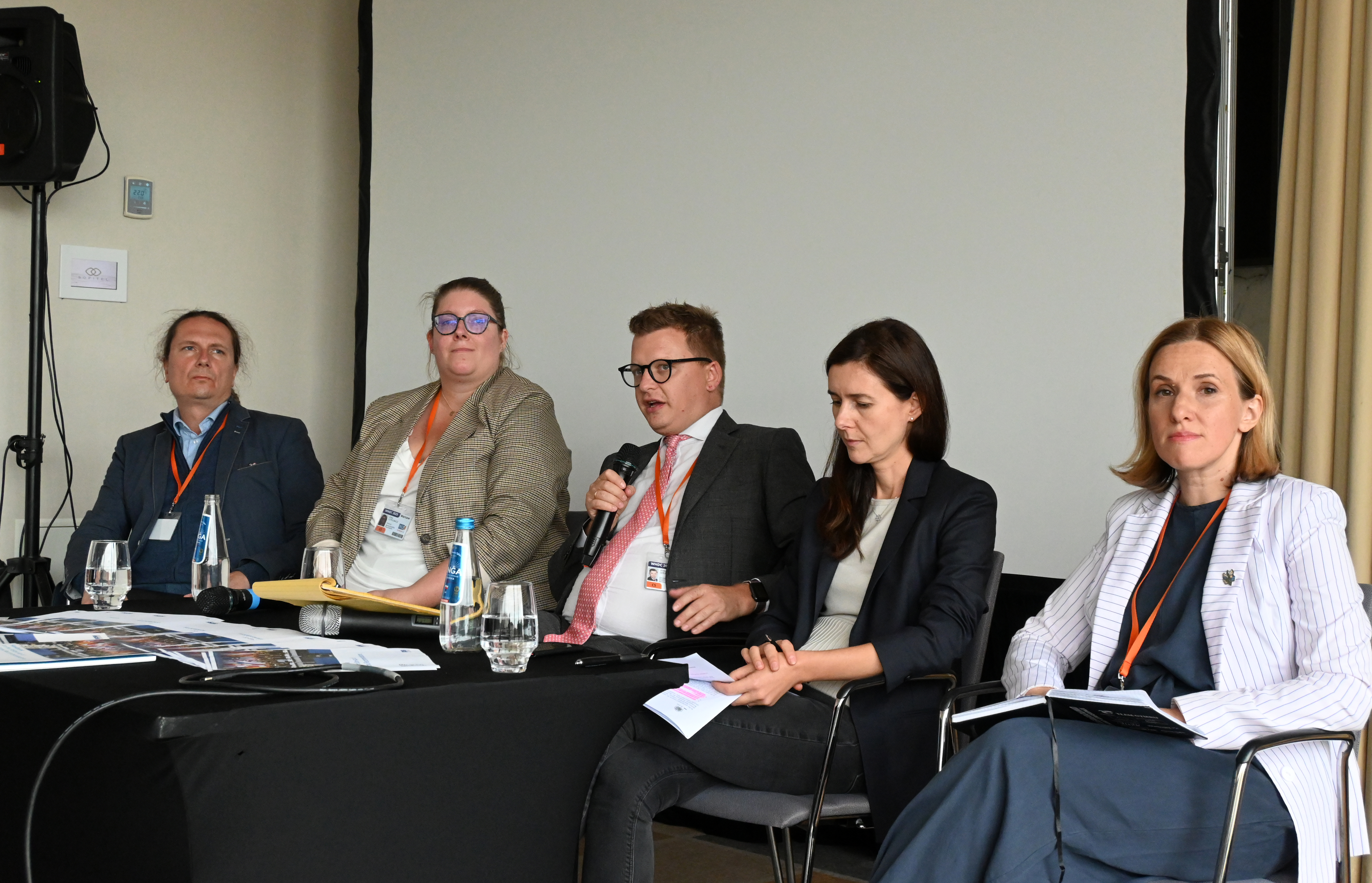Communication and building a shared position between national election observation organizations and international missions is required not only during or after elections, but also between the elections, especially in case of the russian aggression against Ukraine.
This message was shared on October, 4, during a discussion “Implementing Recommendations: Possible Ways of Cooperation Between International and Domestic Election Observers” during the Warsaw Human Dimension Conference, by senior legal adviser at OPORA, Olha Kotsiuruba.
According to her, national professional organizations work with the pre-election processes three quarters of their time, whereas one quarter is dedicated directly to elections. That is why they have much more awareness of all aspects of election process than international organizations.
“If we had not had NGOs engaged in the working groups to draft the Electoral Code, we could not have had special regulations for IDPs voting at local elections, no electoral quotas for women, no accessibility provisions for polling stations, or no information for people with disabilities,” said Olha Kotrsiuruba.
On the other hand, according to her, recommendations of international observers, including the OSCE, continue playing a critical role for the implementation of election reform. In particular, in their assessment of Ukraine’s progress in political part of the Association Agreement, the European Commission relies on the OSCE recommendations. The implementation of the legislation adaptation plan, more often than not, convinces Ukrainian MPs to eventually adopt the appropriate changes.
“That is why it is vital not to duplicate but rather to double the effort. Let me give you two examples, so that we could think together about the possible formats of cooperation. The first case is about OPORA’s work on the amendments to the Criminal Code and to the Code of Administrative Offenses. Before 2016, the same as our international partners, we had been including into our reports the following provision: “Law-enforcement bodies must take due measures to ensure efficient and fast, independent and unbiased investigation of any breaches at elections, including voter bribery, to make sure offenders are prosecuted under the law.” However, the process of investigation and judicial examinations linger for years. For example, we still have the legal proceedings underway on the case investigated upon the report of OPORA observer back in 2015. We started exploring the causes for the inefficiency of investigation. And we identified two issues here: first, gaps in the law; second, enforcement related issues.
Jointly with the Chief Investigation Board of the National Police of Ukraine, we started drafting the amendments. It took us over 2.5 years to convince MPs to adopt them. We only managed to succeed as late as in 2019, after the presidential and the parliamentary elections. In addition, in 2020, we conducted an online training for 60,000 police officers to change the law enforcement practices. At the same time, in the reports of international observers, we continued to see general wordings only, suggesting the need to conduct the investigation. To summarize, if international missions, jointly with national organizations, communicated the issues and outlined the possible solutions, the reform on the inescapable nature of punishment for electoral fraud might have been passed earlier.
Another example is about the situation unfolding today. It is the discussion about the feasibility of holding elections in Ukraine during the war. Two weeks ago, OPORA initiated a statement against conducting elections in the spring. These elections will go against Ukrainian Constitution, and on top of it, lives of citizens will be under threat. The statement has been already signed by over 200 Ukrainian national organizations. However, since the situation is unprecedented, we do not have any opinions or statements from any international organizations we could rely upon in this case to enhance the position of national organizations,” highlighted Olha Kotsiuruba.
